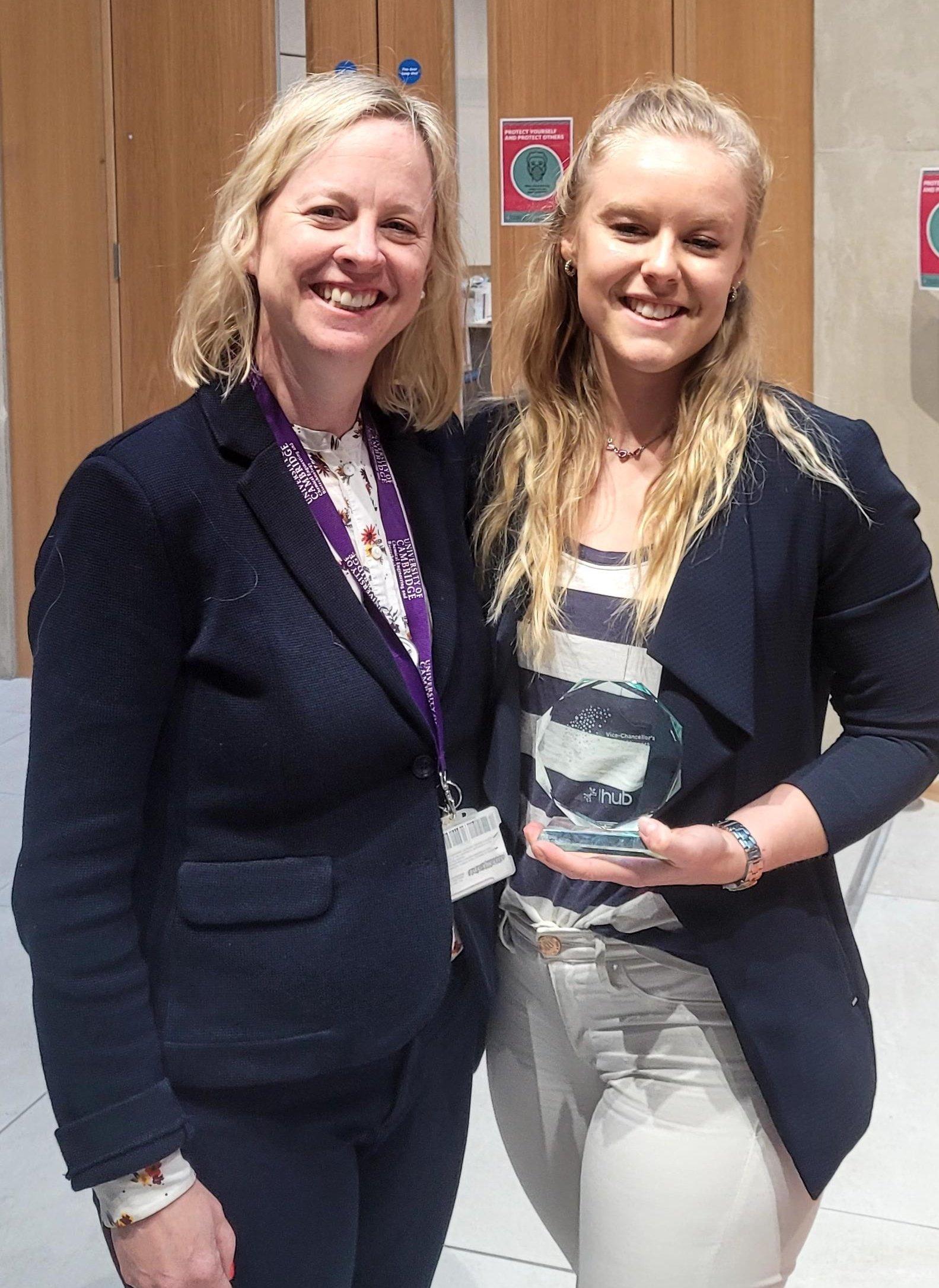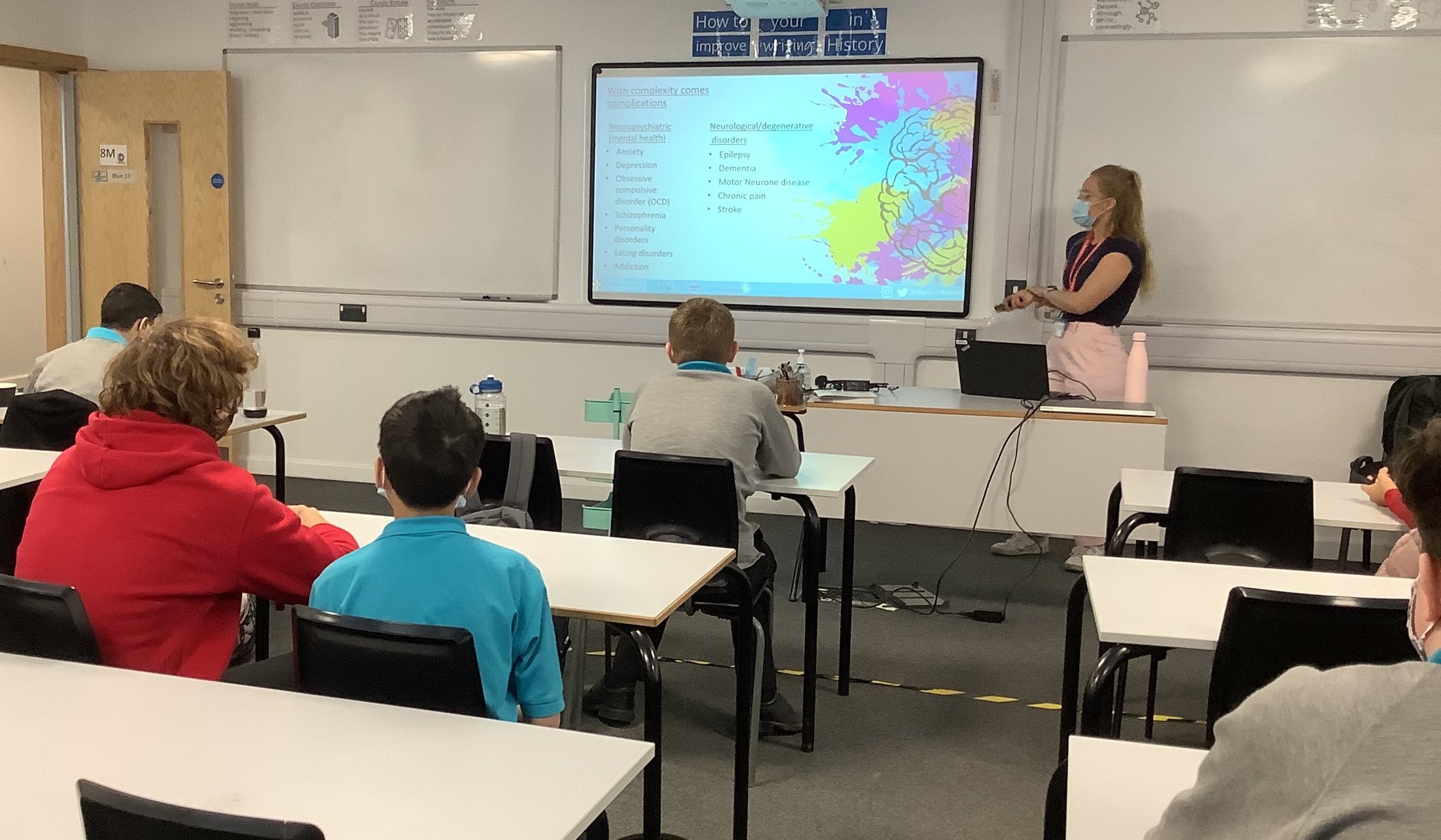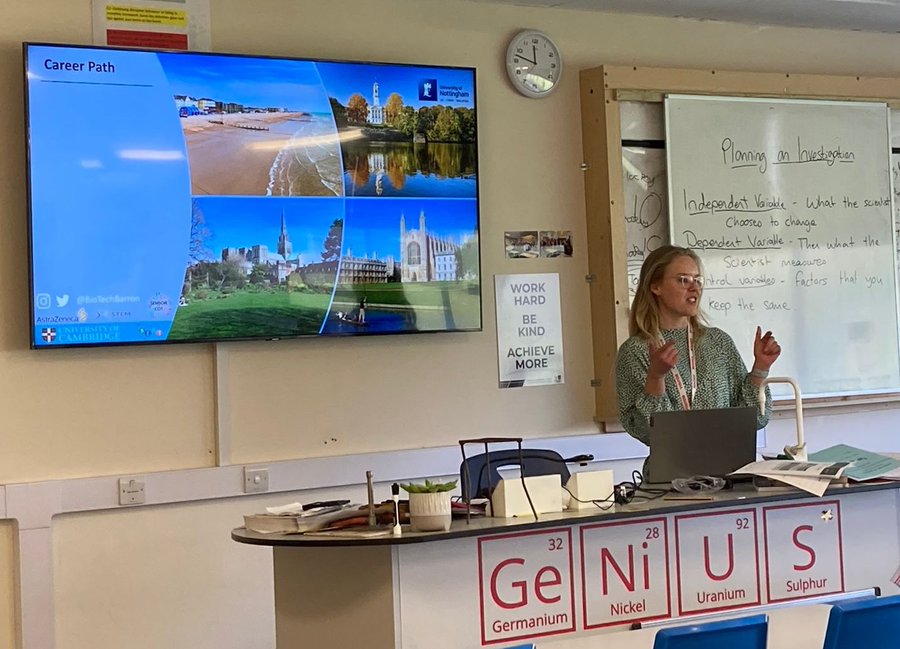
Submitted by A-M. Wolf-Perez on Thu, 19/05/2022 - 15:34
Our Sensors CDT student Sarah Barron (cohort 2018) won the 2022 Vice-Chancellor’s Social Impact Award. Read more about her outreach activities in her blogpost:
"Hi! My name’s Sarah and I’m a PhD student in Chemical Engineering and Biotechnology. I have always been interested in how individuals perceive the world and why the modern environment has seemingly triggered a wave of mental and neuropsychological disorders. In line with my passion for science, I am equally passionate about public outreach, education and raising awareness for social causes. As someone from an underrepresented background (low-income, first generation to receive higher education and have learning disabilities), I am particularly interested in increasing the presence of women and diversity in STEM. I am an Neurodiversity advocate and official STEM ambassador because I strongly believe that everyone has their own unique strengths and should be given the opportunity to learn in an accessible way, irrespective of their background, learning style or income. I hope to reach the next generation of scientists by promoting self-advocacy and creating relatable, accessible and easy-to-digest educational content.
believe that it is important to engage with social and educational issues whilst at University because, having recently navigated the educational system and barriers, I am in a unique position to give advice, experience and provide tools to overcome challenges. Being in a University environment also permits access to a large network of like-minded people and resources which act as catalysts for translating new ideas to real-world impact. Public engagement allows me to have a creative space and I also believe that communication is an essential skill which any researcher should aspire to improve — There is no better time to learn than at the beginning of your career!
Since starting my PhD in 2019 I have been extremely keen to be involved in scientific communication and creating educational content that is accessible for everyone and I tried to tackle this from every angle and gain as many new communication skills as possible! I joined the Chemical Engineering and Biotechnology outreach team which involved writing/editing a termly magazine, creating promotional videos and coming up with creative/interactive educational activities for Cambridge Science Festival. I enjoyed writing so much that I joined Advanced Science News as a blog author and became an official STEM ambassador. As an ambassador I have engaged over 1500 KS3 students in educational talks, career talks, STEM club and mentoring. I also got to host an interactive engineering talk for kids at New Scientist Live 2019 in London. In 2021 I worked closely with local state schools to co-design a biochemistry lab practical and information pack, which has since been implemented into the curriculum of 3 schools. The young students I work with are truly inspiring and motivating.
Another big part of young people’s lives these days is social media and I hope to utilise various platforms to make positive change and provide a stream of unbiased factual scientific content, that is easy to digest. To this end, I am part of the Knowing Neurons team, a student-led online educational platform that provides open-access educational neuroscience content. This year we are embarking on a new project which involves designing a neuroscience related comic, specifically aimed at children and non-experts to explain complex but topically matters such as neurodiversity, mental health and neuronal diseases. I have also set up social media channels for my own research as well as for my lab group (Bioelectronic Systems Technology Group) which involves video production editing, writing and illustration.
Outreach and public speaking may seem daunting at first but It is so rewarding when you start to make an impact and I hope I can continue the momentum. So far, I have been invited to speak as a panelist for a number of events relating to social causes including International Women’s Day, Eating Disorder Awareness Week, Kids STEMclub, Education for All and Neurodiversity and Wellbeing. I am also a volunteer judge and contributor for the Davidson Inventors Challenge, Sutton Trust Summer School and Rosalind Franklin Conference — all initiatives aimed at increasing participation in STEM. Finally, I was a finalist in FameLab 2021, the biggest international scientific communication programme. I hope that with all of these experiences I will learn how to shape my scientific communication to serve a diverse population of people.
Being recognised and nominated for this award was extremely flattering and I am grateful that I can pursue my love for creativity, writing and mentoring alongside my research. This award will present a unique opportunity to meet likeminded individuals across Cambridge and will hopefully lead to some fruitful collaborations and fostering of new ideas, to make an even bigger social impact! I feel very motivated to take my ideas to the next level, in order to bring meaningful change and I hope that my contribution will help to inspire someone in the next generation to pursue STEM and believe in their abilities."




